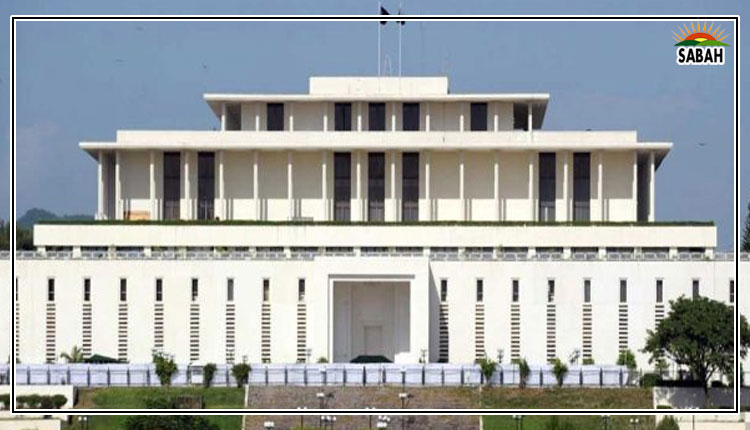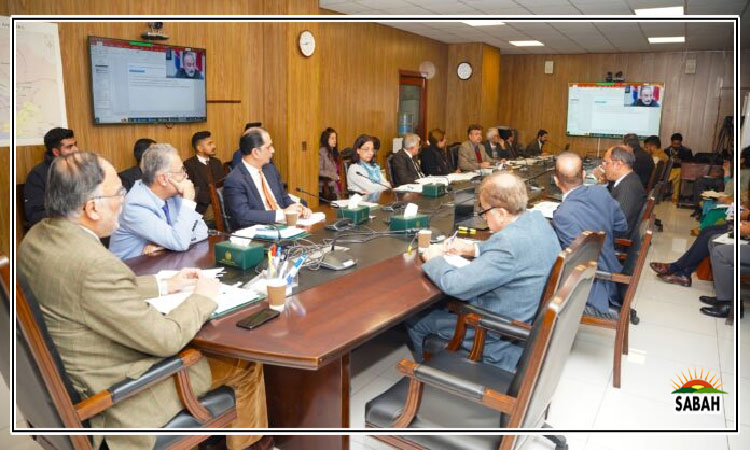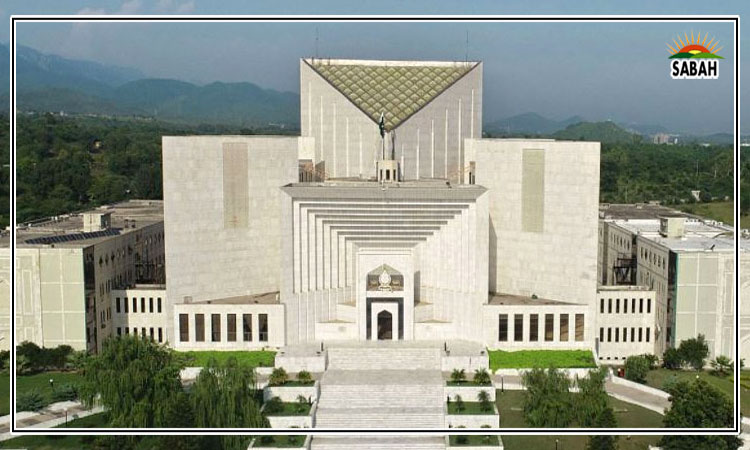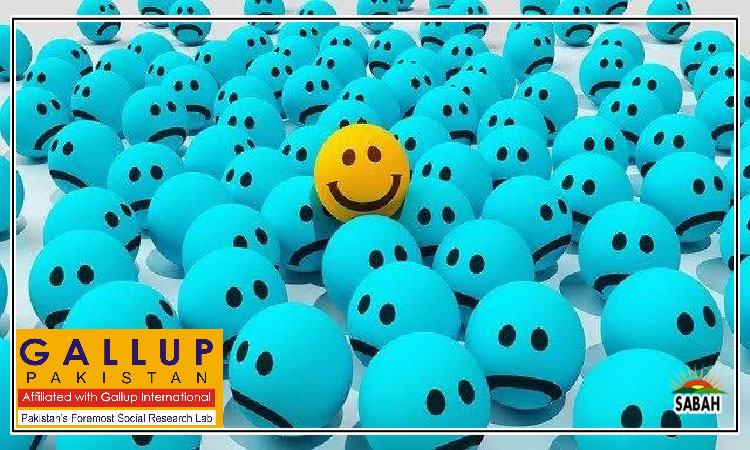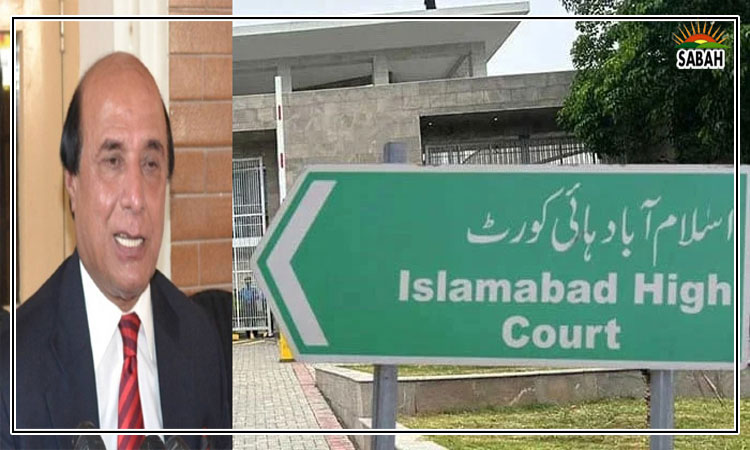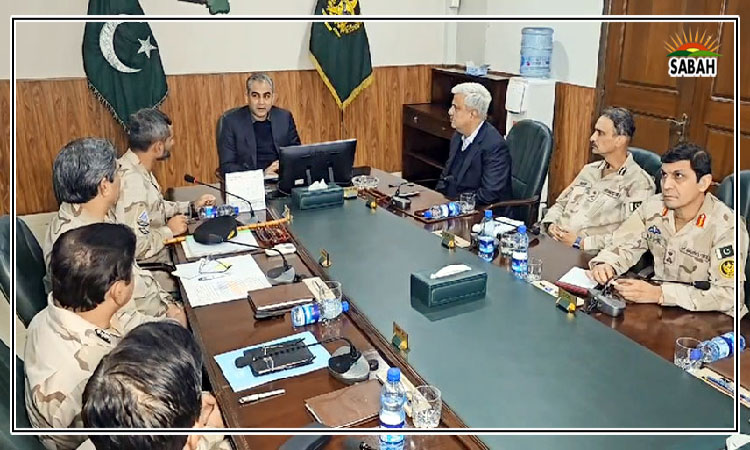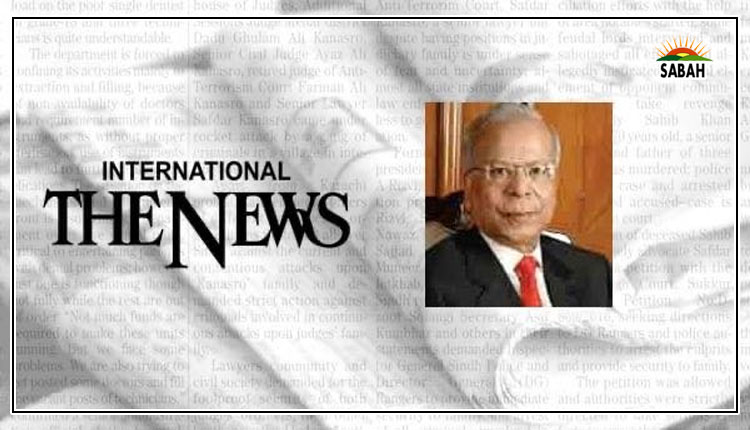Don’t disrupt democracy…Ishrat Husain
SPECULATION and discussions regarding a technocratic government, with an extended tenure of two to three years to extricate the economy from its woes, are rife.
The proposal is flawed on several grounds and must be discarded. First, any extra-constitutional move, even if endorsed by the higher judiciary, would, in the absence of support from the main political parties, face serious difficulties in enforcing unpopular reforms. Street protests against and media censure of higher energy prices, taxation of traders and retrenchment of workers in SOEs would exacerbate economic instability.
Second, given global economic conditions and the extent of domestic shocks, it is not certain that a technocratic government would turn the economy around in such a short span of time.
Third, the inspiration for this model, drawn from the economic progress made under Gens Ayub, Yahya, Zia and Musharraf, is half-baked; a comprehensive approach reveals that the costs and damages incurred far exceed the economic benefits. Notions regarding the economic performance of the 1960s, 1980s and 2000-2007 are based on the premise that these regimes were not looking for popular electoral support and, thus, could take tough, unpopular decisions to reignite the economy. The truth is that each of the four regimes sought legitimacy in different ways but were unable to secure it.
The collateral damage inflicted by extra-constitutional governments have weakened the foundation of the state and led to adversarial relations between various institutions of governance. The separation of East Pakistan in 1971 can be ascribed to the policies and practices pursued by Ayub and Yahya. Zias period saw the rise of religious fundamentalism. Musharrafs reforms were reversed as soon as his government went.
Ayub Khan introduced the system of Basic Democracies, which served as an electoral college for his election as president. East Pakistanis were deprived of their right to majority rule by the principle of parity. The presidential form of government concentrated powers and decision-making in the hands of one person, generating disaffection in the people of the majority province as they werent represented in the corridors of power. Under authoritarian rule, compromises that define a democratic set-up and address genuine public grievances are always missing. Such compromises and dialogue could have kept the federation intact. Ayubs economic reforms were discarded by the incoming government.
Yahyas fatal mistake of not letting the elected majority-party leader assume the office of prime minister fortified the belief that remaining with West Pakistan would be detrimental to East Pakistanis interests. Inimical external forces took advantage of the popular resentment and intervened to break up the country. Under a democratic system, the transition would have been smooth and the need for military action wouldnt have arisen.
Zia, after overthrowing an elected government, introduced an electoral system in which individuals, rather than political parties, were allowed to participate. The Majlis-i-Shoora and cabinet remained subservient to the presidents all-encompassing powers. He couldnt even tolerate his own handpicked PM and dismissed him unceremoniously. The tradition of horse-trading among elected legislators can be traced to this ascendancy of the individual over the party. Trying to gain legitimacy, Zia used the religious card, which created schisms in society and spread sectarianism, extremism, intolerance a legacy that dogs the country even today.
President Musharraf in his first three years did bring about some fundamental changes, such as the Police Order and a local government system to uproot the status quo. However, once he decided to contest elections to remain the president, he had to ensure that the leaders of the two major political parties the PML and PPP remained at bay. He co-opted some members of the two parties to form new factions and to contest elections with the support of the government. The PML-Q ruled the country under the presidents direct guidance. Some progressive reforms, such as the Police Order and LG system, were diluted at the behest of the four provinces chief ministers. The soft regime that emerged after 2004 was no different in its practices from traditional political ways in Pakistan. For example, when global fuel and food prices escalated, the government did not pass through the prices to consumers and allowed the fiscal and external account deficits to bloat. The incoming government after August 2008 had to approach the IMF for bailout.
The incoming elected government reversed many of the reforms taken by the authoritarian government: the LG system that had successfully delivered public goods to the citizens was abolished, the Police Order was replaced by the 1861 Police Act, FBR reforms were suspended and allocations to higher education, science and technology were curtailed. This is inevitably the outcome when a non-democratic regime takes decisions lacking the support of the electorate.
This analysis of extra-constitutional regimes leads to a sobering conclusion. While there may be reforms, progress and prosperity under authoritarian regimes, these do not last long as they do not enjoy the kind of legitimacy offered by democratic set-ups. These reforms are quickly reversed and we are back to square one. Collateral damage is, on the other hand, deep-rooted and alters the sociocultural texture of the country in ways which have promoted violence, factionalism, extremism, ethnic divisions and intolerance in society. These non-economic factors have a huge bearing on the continuing economic crisis. Sustained and inclusive economic growth is not possible in an environment where the law and order situation remains precarious, social capital and trust are missing, individual greed and parochial interests are paramount, and the elites have captured the steering wheels of both polity and economy.
A technocratic government would not be able to come to grips with these fundamental distortions and challenges in two to three years time; only a series of directly elected governments enjoying popular electoral support would have a relatively better chance to do something about it. Politics is the art of discussion, debate and making compromises in the larger national interest. Both the treasury benches and the opposition have a responsibility to make it work. Differences in policies, views and stances should not deter them from talking to each other and evolving a consensus on removing the major constraints facing the economy.
Parliamentary committees, parliament, the Council of Common Interests, the National Security Committee and the National Economic Council are the instruments to be utilised for this purpose. Other electoral reforms, including the parameters for accountability, should be ingrained into the law and practices. Informal and private behaviour and public pronouncements make a substantial difference in the nurturing of democratic governance. Tolerance and forbearance are tools which should be adopted in restoring the supremacy of democracy in the country.
Courtesy Dawn


